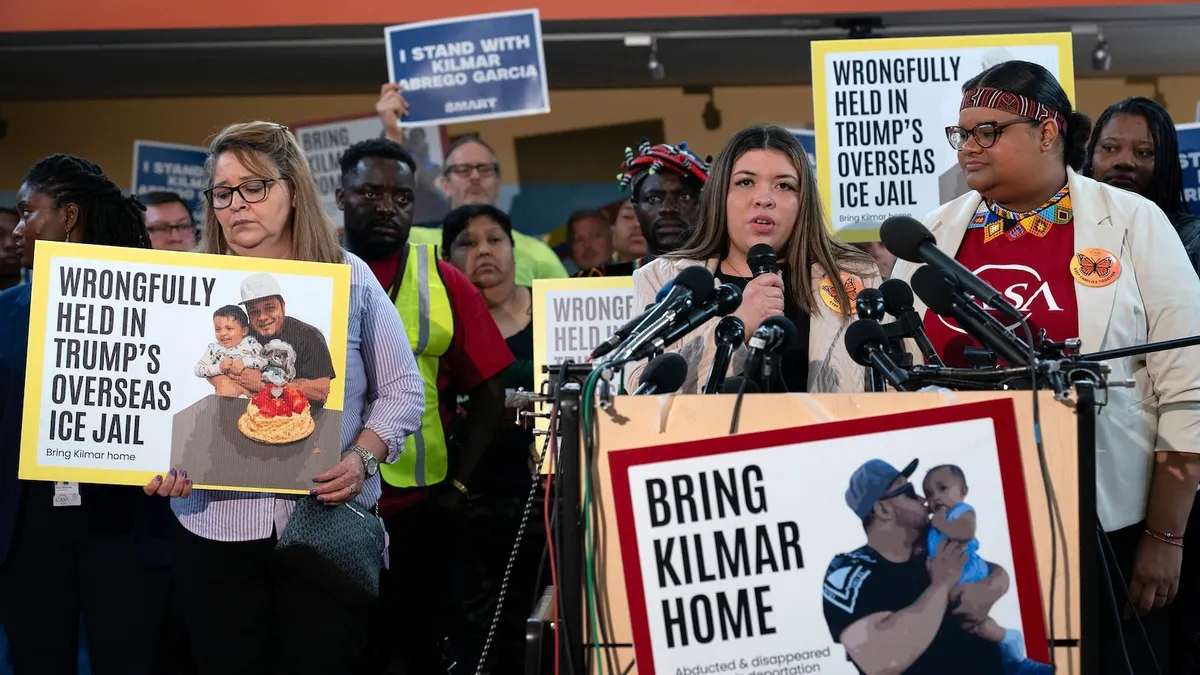
A federal judge has strongly defended her ruling requiring the Trump administration to facilitate the return of Kilmar Abrego Garcia from a notorious prison in El Salvador. U.S. District Judge Paula Xinis denied the government's request to stay her order while they appeal the decision, insisting that the actions taken against Abrego Garcia were fundamentally flawed.
In a recent court filing, Judge Xinis characterized the government's decision to send the 29-year-old Abrego Garcia to CECOT prison in El Salvador as a "grievous error." An official from the U.S. Immigration and Customs Enforcement (ICE) admitted that an administrative mistake resulted in Abrego Garcia's deportation, despite a 2019 court order prohibiting his removal due to fears of gang-related persecution in his home country.
Judge Xinis criticized the government's actions, stating, "As Defendants acknowledge, they had no legal authority to arrest him, no justification to detain him, and no grounds to send him to El Salvador." She emphasized the inhumanity of placing Abrego Garcia in one of the most dangerous prisons in the Western Hemisphere, especially given the risk of harm he faces there.
In her ruling, Judge Xinis noted that Abrego Garcia was forcibly placed in a facility that mixes rival gang members, increasing the likelihood of violence. "Defendants have claimed—without any evidence—that Abrego Garcia is a member of MS-13 and then housed him among the chief rival gang, Barrio 18," she wrote. This is particularly troubling as Barrio 18 is the very gang that has persecuted Abrego Garcia, leading to his withholding of removal.
Abrego Garcia's legal team has consistently maintained that he has no affiliations with MS-13, Tren de Aragua, or any other criminal gangs. They argue that the government has failed to provide any credible evidence substantiating these claims. In her filing, Judge Xinis pointed out the lack of evidence from the government to justify Abrego Garcia's continued confinement and deportation.
Judge Xinis asserted that the court retains jurisdiction over the case since Abrego Garcia is challenging his removal to El Salvador rather than the fact of his confinement. She expressed disbelief at the government's argument that they could forcibly remove individuals, including U.S. citizens, to foreign prisons without retaining the ability to return them. "As a practical matter, the facts say otherwise," she added.
In her ruling, Xinis cited statements made by Department of Homeland Security Secretary Kristi Noem, who referred to CECOT prison as a tool in their toolkit for handling deportations. "Defendants can and do maintain the power to secure and transport their detainees, Abrego Garcia included," she wrote, emphasizing that the U.S. government has not provided satisfactory answers regarding their inability to secure his return.
On Saturday, the Trump administration filed an emergency motion to stay Judge Xinis' order, prompting the appellate court to allow Abrego Garcia's legal team until 2 p.m. Sunday to respond. In March, ICE officers informed Abrego Garcia that his immigration status had changed, leading to his detention and transfer to a detention center in Texas before being sent to El Salvador on March 15.
During a news conference, Abrego Garcia's wife, Vasquez Sura, made an emotional plea for the return of her husband. "If I had all the money in the world, I would spend it all just to buy one thing: a phone call to hear Kilmar's voice again," she said, expressing her deep longing and commitment to fight for him and their children.
This ongoing legal battle highlights significant issues surrounding immigration policies and the treatment of individuals facing deportation, raising critical questions about the responsibilities of the U.S. government in safeguarding human rights.